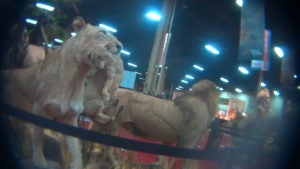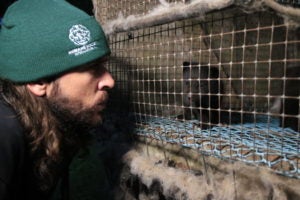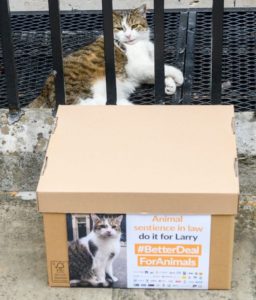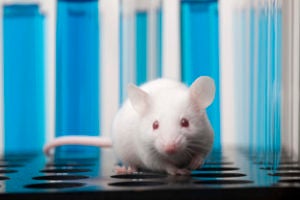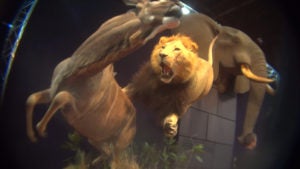
LONDON — As the UK government considers introducing a ban on hunting trophy imports and exports, an undercover investigation by Humane Society International and the Humane Society of the United States has exposed the sale of sickening pay-to-slay trips to kill iconic wild animals all over the world, including in England, Africa, Canada and Russia. Also on offer were grotesque wild animal products, such as belts and boots made of elephant, hippo, stingray and giraffe skins.
The shooting excursions and animal items were being sold by exhibitors at the world’s largest trophy hunting convention held in Nevada, USA, organised by Safari Club International. The event took place on February 5th – 8th, just over a fortnight before the UK government’s trophy hunt import / export ban consultation closes on February 25th.
Hunting trips for sale at the SCI convention included:
- A $350,000 hunt for a critically endangered black rhino in Namibia.
- An outfitter advertised its “Trump Special” – a $25,000 hunt for a buffalo, sable, roan and crocodile.
- A captive-bred lion hunt in South Africa for $8,000.
- A $6,000 hunt for any six animals that a customer can choose to kill in South Africa, such as zebras, wildebeest, warthogs, impalas, hartebeest, gemsbok, nyala, and waterbuck.
- A polar bear hunt in Canada sold for $60,000.
- An Asiatic black bear hunt in Russia for $15,000.
- A Roe and Muntjac deer hunt in England for $7,000.
- A red deer hunt in Scotland for $4,200.
- Hunts of a range of animals in EU countries such as wild boar in Italy and Kri Kri ibex in Greece.
- Some 45 hunting outfitter exhibitors from Belgium, France, Germany, Greece, Hungary, Italy, Macedonia, Portugal, Spain and the UK were at the convention.
Jeff Flocken, president of Humane Society International, said, “Our shocking investigation shows that no animals are off limits to trophy hunters. From shooting giraffes, hyenas, zebras, elephants, hippos, primates and lions in Africa to deer, ibex and wild boar in the UK and Europe, the trophy hunting industry reveals its true nature – one that is motivated by the thrill to kill, and not by conservation.”
Claire Bass, executive director of Humane Society International/UK said, “Any of the animal hunts offered at the SCI convention could easily have been bought by a UK hunter, and without an import ban they could then import those hunting trophies back to the UK. As bragging and trophy display is integral to the appeal, a comprehensive UK ban on imports and exports of hunting trophies would be a major nail in the coffin of this cruel and archaic industry. HSI urges the UK government to implement a ban as soon as possible.”
Records from the Convention on International Trade in Endangered Species show that a staggering 2,260 trophy parts from more than 50 CITES-listed species were exported to the UK between 2008 and 2017. The top five exporting nations were South Africa, Canada, Zimbabwe, Namibia and Botswana. These UK imports included 565 trophies from African elephants, 303 from hippos and 265 from American black bears. The macabre haul included 262 ‘skins’, 249 ‘skulls’, 53 ‘feet’ and 16 ‘tails’.
Among the other items for sale at the SCI convention were boots made of giraffe skin ($1,390) and kangaroo skin ($1,080), and trips to hunt Asiatic black bears, giraffes, elephants, lions, hippos, and more. One outfitter said hunting a giraffe costs “only” $1,200 because they have “too many giraffes” and need to “get rid of the animals.” The truth is that giraffe numbers have declined by 40% in the past 30 years, plummeting to fewer than69,000 mature animals left in the wild.
For the second year in a row, the investigator found “canned” lion hunts for sale, where customers pay to shoot a captive-bred lion, violating SCI’s own ban that it implemented in February 2018. One vendor bragged that his safari company holds five of the top 10 lions ever recorded in SCI’s Record Book.
Among the featured speakers and entertainers at the convention were Donald Trump Jr. and the Beach Boys. A “dream hunt” with Donald Trump Jr. in a luxury yacht in Alaska to kill black-tailed deer and sea ducks was sold at auction at a whopping $340,000. A taxidermy ibex mountain goat that Trump Jr. reportedly killed was on display on the convention floor.
HSI believes that some animal product items on sale appear to violate Nevada’s law on wildlife trafficking. This is not the first time that vendors at SCI’s convention defied local authorities. Last year a dozen vendors were found selling illegal wildlife products in potential violation of the state law. HSUS and HSI have submitted evidence of the violations of state law to local enforcement authorities.
Photos/video from the 2020 investigation.
ENDS
Media contacts:
UK: Wendy Higgins, +44 (0)7989 972 423, whiggins@hsi.org
USA: Nancy Hwa, 202-676-2337, nhwa@hsi.org
Humane Society International and its partner organizations together constitute one of the world’s largest animal protection organizations. For more than 25 years, HSI has been working for the protection of all animals through the use of science, advocacy, education and hands on programs. Celebrating animals and confronting cruelty worldwide – on the Web at hsi.org.

